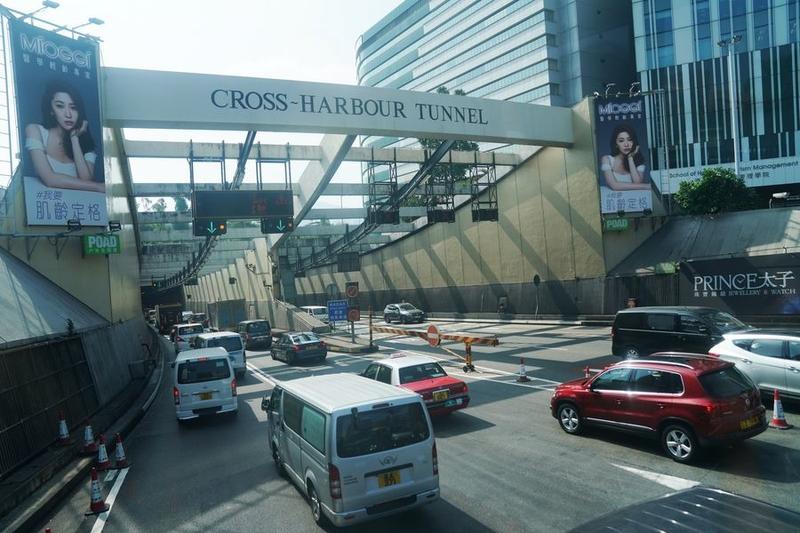 Photo taken on Aug 5, 2019 shows China's national flag and the flag of the Hong Kong Special Administrative Region at the Golden Bauhinia Square in Hong Kong. (WU XIAOCHU/XINHUA)
Photo taken on Aug 5, 2019 shows China's national flag and the flag of the Hong Kong Special Administrative Region at the Golden Bauhinia Square in Hong Kong. (WU XIAOCHU/XINHUA)
HONG KONG - The Basic Law has played a key role in safeguarding the prosperity and stability of the Hong Kong Special Administrative Region during the past over 20 years and various sectors of Hong Kong society should continue to comprehensively implement the Basic Law for better development of Hong Kong, renowned legal experts said Friday.
READ MORE: The Basic Law — best safeguard for HK's prosperity and stability
The experts made the remarks ahead of the 30th anniversary of the promulgation of the HKSAR Basic Law which falls on Saturday.
Hong Kong saw a smooth return to the motherland and a stable transition period, and it has since then been prosperous and stable and maintained the rule of law and independent judiciary, said Leung Oi-sie, former secretary for justice of the HKSAR government
In general, the Basic Law has seen successful implementation since Hong Kong's return to the motherland, experts said.
Thanks to "one country, two systems" and the Basic Law, Hong Kong remains as one of the freest economies in the world and a global hub of trade, finance and shipping, Tam Wai-chu, deputy director of the HKSAR Basic Law Committee of the National People's Congress Standing Committee, said.
Hong Kong residents have continued their lifestyle and their rights and freedoms have been fully protected, Tam said.
Leung Oi-sie, former secretary for justice of the HKSAR government, said founding missions of the Basic Law, including upholding national unity and territorial integrity and maintaining the prosperity and stability of Hong Kong, have been generally delivered over the past decades.
Hong Kong saw a smooth return to the motherland and a stable transition period, and it has since then been prosperous and stable and maintained the rule of law and independent judiciary, Leung said.
The drafting of the Basic Law was open and transparent and rallied consensus of various sectors of Hong Kong, Kan Chung-nin, founding chairman of the Association of Hong Kong Professionals, said.
The Basic Law was widely welcomed in Hong Kong society upon promulgation as it took into account the interests of both the nation and various sectors of Hong Kong, Kan said, noting that most of Hong Kong residents agree that "one country, two systems" and the Basic Law are the best arrangement for Hong Kong.
Since the return of Hong Kong, the Chinese central government has been committed to the principles of "one country, two systems," "Hong Kong people administering Hong Kong" and a high degree of autonomy in the HKSAR in strict accordance with the constitution and the Basic Law, said Leung Mei-fun, a member of the Legislative Council.
 Photo taken on Nov 27, 2019 shows the entrance of the Cross-Harbour Tunnel in Hong Kong. (WANG SHEN/XINHUA)
Photo taken on Nov 27, 2019 shows the entrance of the Cross-Harbour Tunnel in Hong Kong. (WANG SHEN/XINHUA)
To better implement the Basic Law in Hong Kong in the future, Kan suggested the HKSAR government improve education of young people to let them understand the meaning of "one country, two systems" and the Basic Law comprehensively and accurately.
Then young people will realize Hong Kong should shoulder the responsibility of safeguarding national security, integrity and core interests, Kan said.
ALSO READ: Basic Law hailed as 'cornerstone' of HK's stability and prosperity
More efforts should also be made to resolutely stop the smearing and misreading of the Basic Law, Tam said, warning that some plotters' attacking "one country, two systems" and brainwashing Hong Kong residents will threaten the foundation of the Basic Law.
If in the future some political groups or politicians attempt to harm the national security, integrity and core interests, the central government will timely punish their illegal activities within the framework of the Constitution and the Basic Law to prevent further damages to the country and Hong Kong society, Leung Mei-fun said.


